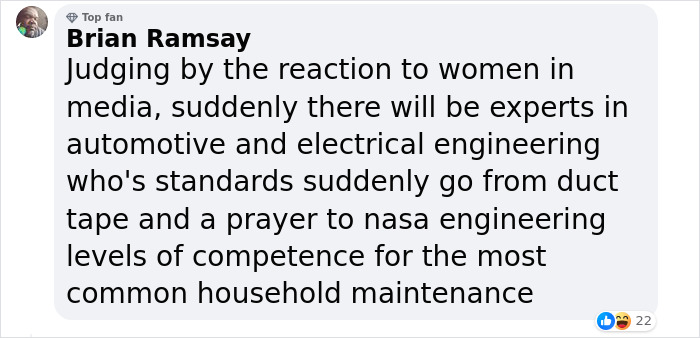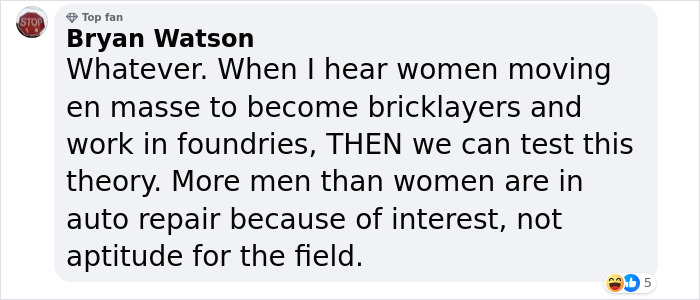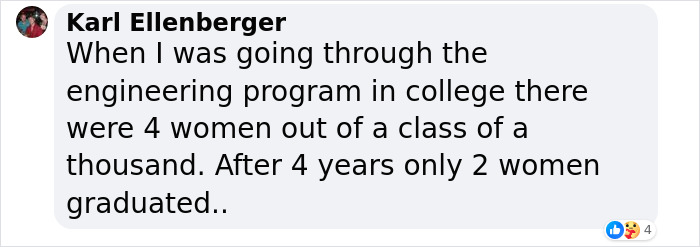At the dawn of human history, when our distant ancestors lived in caves, and every saber-toothed tiger could theoretically cause the extinction of the human race, everything was quite simple. Women gave birth and raised kids – because the survival of the entire tribe depended on it. The men, in turn, took spears and went hunting – because survival again depended on this as well.
Now, many thousands of years later, the question of human survival is no longer a question (or rather, it is – but in a completely different context), so in essence there are no specifically “masculine” or “feminine” fields. And yet, public opinion still has many stereotypes and biases over gender and jobs or hobbies.
More info: Tumblr
The author of the post started a discussion about how certain fields get perceived as typically ‘masculine’ or ‘feminine’

It turns out, the author claims, that when women en masse enter some field, it starts to be perceived as ‘soft’ several years or decades later
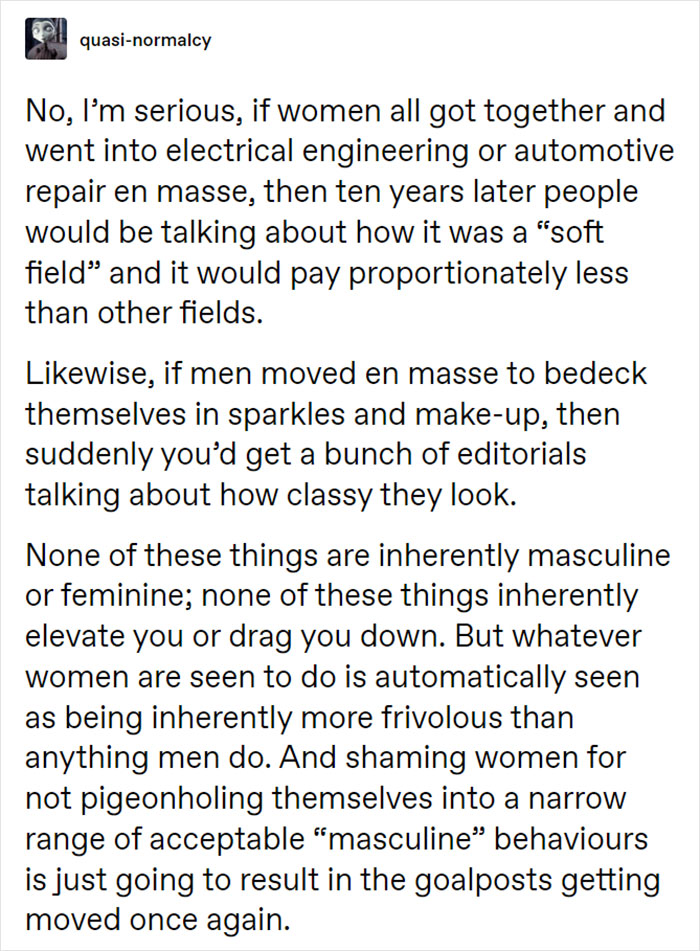
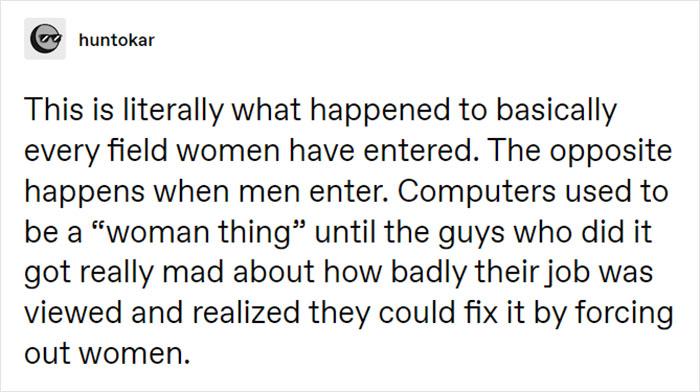

Lively debate ensued and many users gave their own examples, from both science, jobs and even hobbies

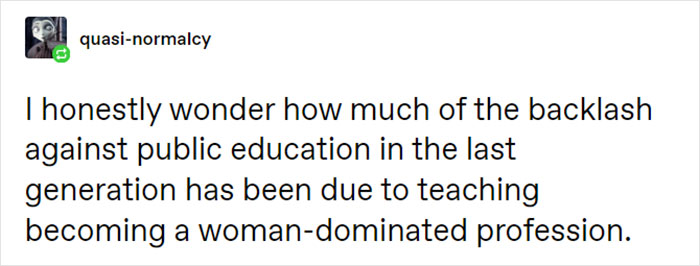
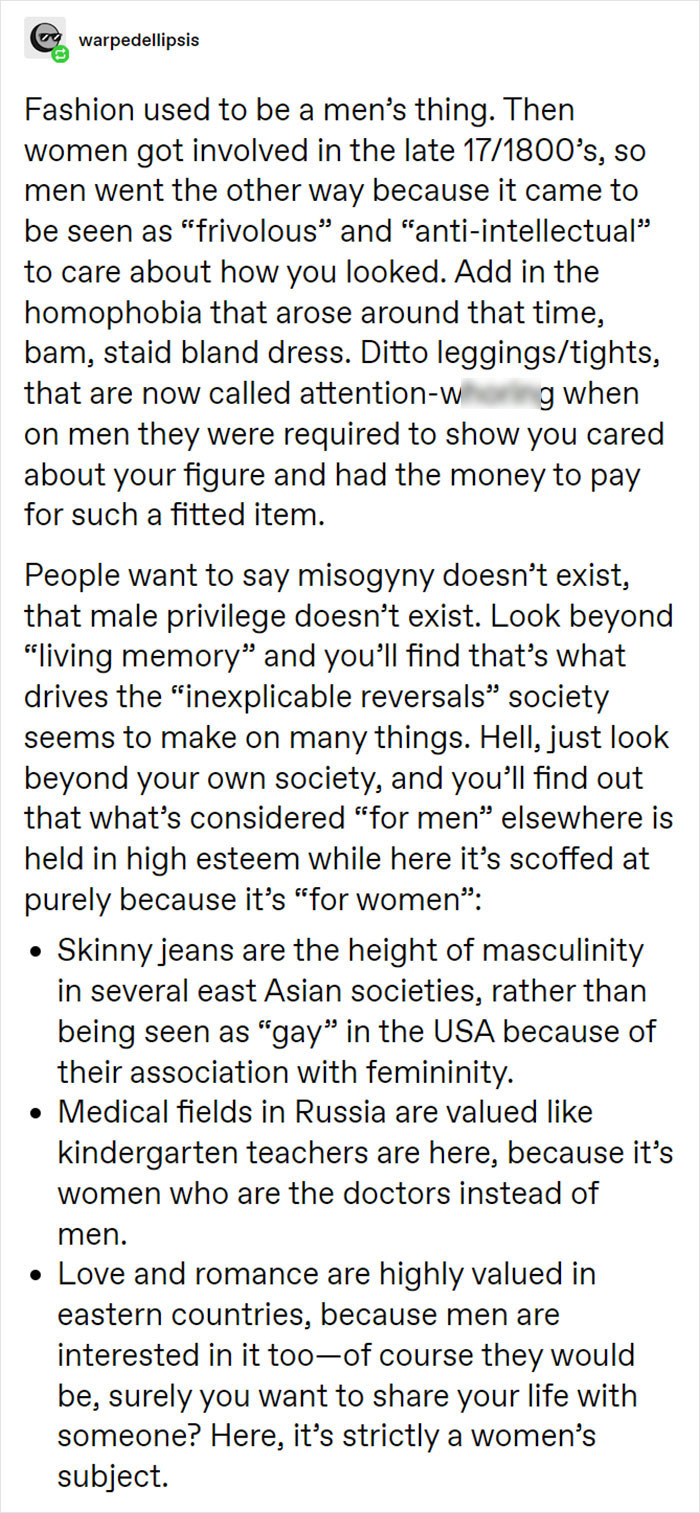
For example, someone reminisced that fashion used to be ‘masculine’ around 200 years ago

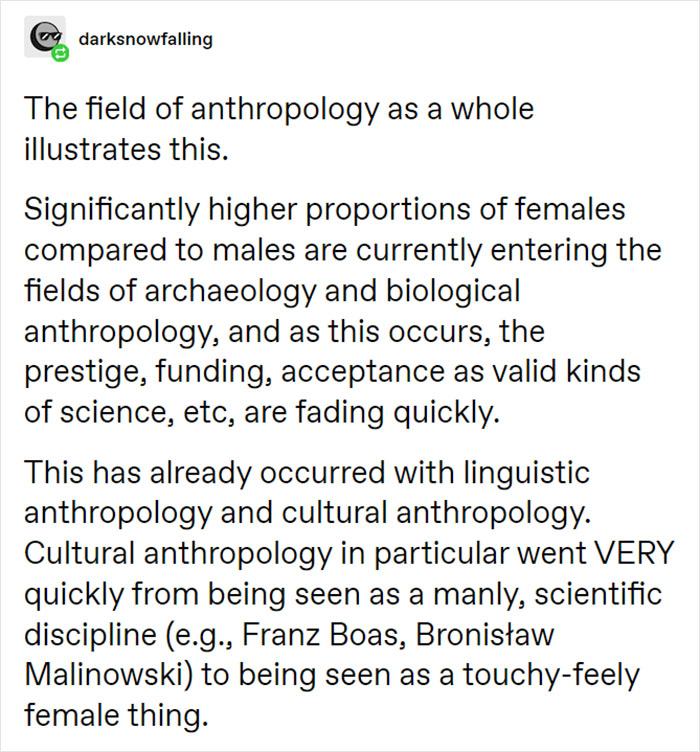

So this is how our social consciousness has been working since ancient times, the author presumes
As for stereotypes in public perception, here’s an interesting post on Tumblr, the author of which is almost sure that if women today en masse took up electrical engineering or automotive repair, then after a decade or two in the public consciousness, these fields would begin to be perceived as “soft.”
In turn, if men en masse were carried away by decorating themselves with sparkles and makeup, then the author is pretty sure that after some time there would be, let’s say, a lot of editorials stating how classy their look is.
At the same time, according to the author of the post, in the modern world, there are no typical feminine or masculine activities. And anyway, everything that women undertake invariably acquires a certain frivolous connotation in the eyes of society. At least more frivolous than anything men do.
In the ensuing discussion, other users agreed with the author, arguing that something similar happened once, for example, with computers, which at their beginning were considered a “woman thing” – until men began to enter this field en masse.
And in general, according to some users, something similar is happening in many fields where women are massively involved, both in science – for example, sociology or anthropology, and in public education, since teaching became a woman-dominated profession. At the same time, some users note, for example, back in the early 19th century, fashion was considered a male field until women got massively involved there – after which fashion began to be considered in society as something “frivolous” and “anti-intellectual.” This is how, according to people online, the consciousness of our society has been functioning for a long time…
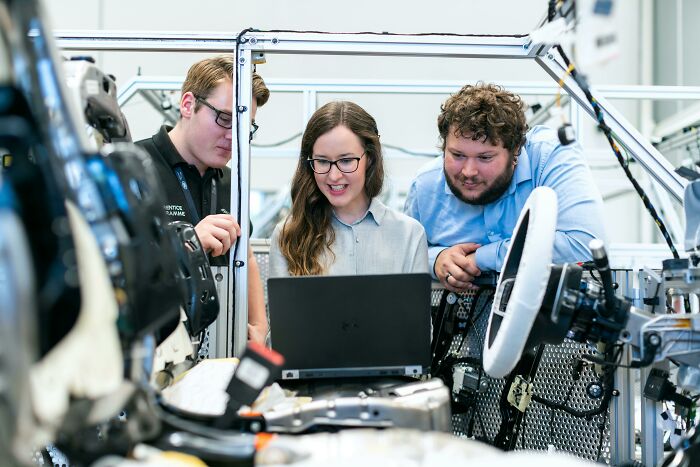
Well, in fact, for example, even at the turn of the 18th and 19th centuries, fashion was indeed a completely universal field – history knows both famous women of fashion and no less legendary British dandies. For example, George Brummell, who even received the nickname “Prime Minister of Elegance” in London. And only then, closer to the middle of the century, fashion became predominantly feminine – and instantly got perceived as something vain and almost stupid.
However, as some commenters rightly note in the discussion that ensued under the original post, now, in quantitative terms, it is women who predominate in the labor market. “Right now, for the first time in history, we have less males between 25-45 in the workforce. Period,” the commenter summarizes.
Some users do believe that the theory of the original poster should be tested with time – and so far we haven’t seen a mass transition of women into, for instance, automotive repair. According to one commenter, this is simply a matter of interests. “More men than women are in auto repair because of interest, not aptitude for the field,” someone in the comments presumed.
On the other hand, how are these interests formed? Isn’t society, with its classic biases and stereotypes, responsible for this? And then, when we take statistics on “typically male” curricula, we see, as one commenter admitted, “4 women out of a class of a thousand.”
In any case, the era in which we live today provides some unique opportunities in the history of humanity in the field of learning (no, seriously – just compare, for example, with the situation that was at least half a century ago, and then try to be ironic about it). And perhaps discussions like this will sooner or later change public perception towards full equality. With no stereotypes. Without any prejudice.
People’s opinions in the comments were divided, as some think this theory should be actually checked with time
